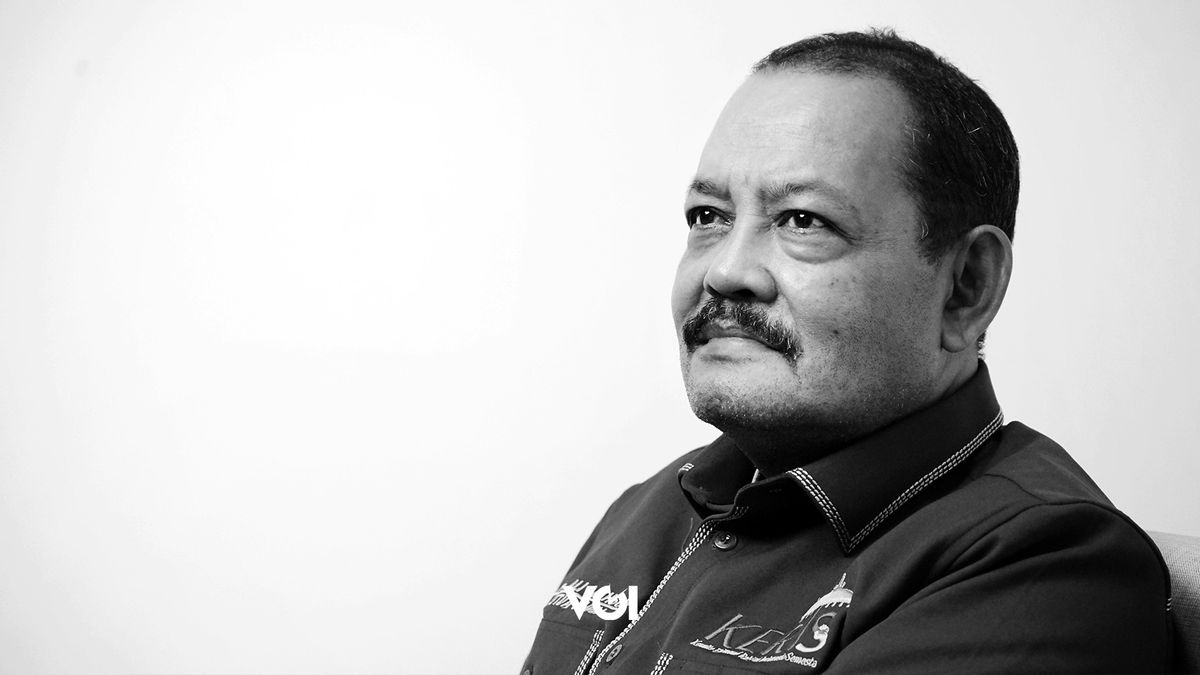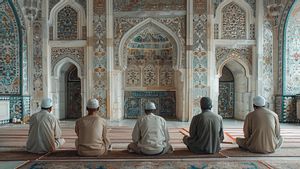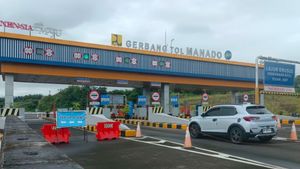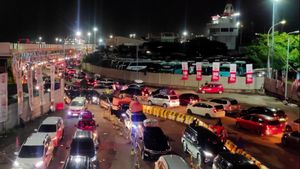The presence of PP No. 28 of 2024 concerning the Implementing Regulations of Law No. 17 of 2023 concerning Health has caused many reactions. One of them came from the General Chairperson of the Indonesian Street Vendors Association (APKLI) dr. Ali Mahsun Atmo, M.Biomed. According to him, the regulation regarding the prohibition of retail cigarette sales and the prohibition of 200-meter zoning for selling cigarettes from schools and children's playgrounds is very detrimental to street vendors (PKL). Therefore, he asked President Jokowi to withdraw this regulation.
***
If President Jokowi, and also President Prabowo who was elected in the 2024 presidential election, do not want to revoke PP No. 28 of 2024, he has prepared an action agenda. "We will conduct a judicial review of PP No. 28, especially for the article related to the prohibition of selling cigarettes in retail. Then about the 200-meter zoning of cigarette sellers from educational institutions and children's playgrounds. Why are we doing this? Because the impact is very broad. So far, unemployment has been high, coupled with the implementation of PP No. 28. It will be even more difficult for our people," he reasoned.
In fact, Ali Mahsun Atmo demanded that there be a solution or middle ground from this government regulation. If not, many people will be affected. "The government must also find a solution, not just be able to prohibit it. What is more crucial is the issue of drug trafficking among young people. This is more dangerous, but it is not discussed how to overcome it," he said.
In addition to the ban on retail cigarette sales, Ali also criticized the plan to apply excise for fast food traders. This issue will also burden traders, both large and street vendors. If this regulation is enforced, street vendors will also be targeted by excise.
According to Ali Mahsun Atmo, there are many ways to increase state revenue without burdening the common people, including street vendors. “There are still many resources in this country that have not been optimized. Our taxes have not been optimized. The excise sector, how many imported goods enter without excise. Then foreign exchange, there are still many whose taxes are free. The mining sector has also not been maximized. Therefore, we support the unification of the tax sector, excise, and other state revenue units,” he said to Edy Suherli, Bambang Eros, Irfan Meidianto, and Dandi Juniar when visiting the VOI office in the Tanah Abang area, Central Jakarta, recently. Here is an excerpt.

What is your response as the General Chairperson of APKLI to the ban on selling cigarettes at retail?
Since December 2022, as the General Chairperson of APKLI, I have asked President Jokowi not to ban the sale of cigarettes at retail. Why? Because this concerns millions of economic actors, street vendors, street vendors, grocery stores, and others. They depend on the sale of cigarettes at retail. If this is prohibited, what will they eat? The majority of the 70 million smokers in Indonesia are low-income people. But in reality, PP No. 28 of 2024 concerning the Implementing Regulations of Law No. 17 of 2023 concerning Health has also been issued.
I observe that PP No. 28 is discriminatory. As a result of this regulation, tens of millions of our people cannot buy cigarettes at retail. In fact, in this republic, smoking is not prohibited, except in certain places where there is a prohibition. Then there are around 2 million tobacco farmers, 200,000 tobacco plantation workers, 1.2 million clove farmers, 1.5 million cigarette factory workers, and hundreds of thousands of household industries of rolling cigarettes. If this is ignored, it will increase the number of unemployed.
Then what action will you and APKLI take next?
We will conduct a judicial review of PP No. 28, especially for the article related to the prohibition of selling cigarettes at retail. Then about the 200-meter zoning of cigarette sellers from educational institutions and children's playgrounds. Why are we doing this? Because the impact is very broad. So far, unemployment has been high, coupled with the implementation of PP No. 28. It will be even more troublesome for our people.
How many street vendors will be affected by the implementation of PP No. 28 of 2024?
The first is street vendors, there are around 600 thousand throughout Indonesia. If PP No. 28 applies, they will lose their jobs. Then the traveling coffee sellers, they will also be affected. Then the street vendors on the side of the road. There are also 4.1 million grocery stores throughout Indonesia. Their income will drop drastically. Because cigarettes are a medium to attract people to come and buy other goods. A total of around 10 million from the traditional retail sector will be affected by this regulation.
If we talk about the cigarette industry, from tobacco farmers, large cigarette factories, home cigarette factories, cigarette factory workers, and others, there are around 30.4 million who will be affected. So, there are many who will be affected by PP No. 28 of 2024.
The Ministry of Finance said that this ban does not have a significant impact on cigarette sales, in fact the value of cigarette purchases is greater because 1 pack is purchased. What is your response?
I am sure that the ban on retail cigarette sales and zoning below 200 meters from schools and children's playgrounds will reduce the turnover of grocery stores by at least 40%. The majority of smokers have low incomes, if they are banned they will not buy cigarettes. If cigarette purchases decrease, it will affect sales of other goods.
I also want to question the statement of the Minister of Health regarding the prohibition of retail cigarette sales and the existence of a 200-meter zoning near schools and children's playgrounds, related to the state spending Rp11 trillion due to shortness of breath. It should be noted that shortness of breath is not only caused by cigarettes, it can also be caused by asthma, genetic diseases, or infectious diseases such as tuberculosis. This means that public officials cannot just frame it. If the goal is to prevent minors from smoking, I agree.

On the one hand, the government wants to be healthy by banning retail cigarette sales and 200m zoning, but on the other hand, the income of small traders is threatened, their economy becomes unhealthy, what do you think is the middle way?
The middle way, first the government must explain about smoking which is detrimental to health. What is being compromised? So far, there has been an opinion that smoking can cause lung cancer, but where is the scientific data? All that exists is statistical data, where a lung cancer patient is asked by a doctor whether he smokes. The patient answers; yes. This is what is recorded.
Second, there are many schools and playgrounds spread across the country. Near schools and playgrounds there are grocery traders, under a radius of 200 m. If they are prohibited from selling retail cigarettes, how can turnover be said to increase? There are around 1 to 1.5 million grocery stalls that will be affected by this regulation.
Third, make no mistake, grocery traders, street vendors, and street vendors are affected when the prevalence of children smoking increases. If you want to reduce the prevalence of children smoking, the state must be present seriously. I suggest that the cigarette excise collected can be used to buy cigarette companies. If that is the case, the government can determine and regulate cigarette production capacity. Currently, cigarette production is 315 billion sticks per year.
Do you mean that there must be a solution from the state if street vendors, grocery stores, and hawkers are prohibited from selling cigarettes at retail?
Yes, the government must also find a solution, not just ban it. What is more crucial is the issue of drug trafficking among young people. This is more dangerous, but it is not discussed how to overcome it.
In 2023, cigarette excise collected IDR 167.3 trillion, the previous year it fell IDR 170 trillion, in your opinion has the government used excise funds to improve public health?
The APBN sources are some from taxes and excise, some are outside of that. Because cigarette excise has entered the APBN, of course it has been used for health. To President Jokowi and also his successor, President Prabowo, I hope that you truly understand the suffering of the people. Currently, the people's economy is declining. There are more than 40 million middle class people who are threatened, because salaries have not increased while the burden of life has increased.
I will rally my colleagues and organizations to join hands. First, we will urge the President to revoke PP No. 28 of 2024. The second step, we will file a judicial review to the Supreme Court on PP No. 28 of 2024.
What articles will be proposed for revision?
PP No. 28 of 2024 has a broad scope. We focus on the issue of the prohibition of selling cigarettes at retail, as well as zoning 200 meters from schools and children's playgrounds that prohibit the sale of cigarettes. Because our scope is related to street vendors who sell cigarettes and also culinary, we will also file a judicial review of the article that discusses ready-to-eat food that is subject to excise. If this is implemented, the common people will also be affected.
Currently, culinary traders are subject to regional levies, then there will be excise. Therefore, we demand the government to issue a Law on the Digital Economy. When shopping offline at a Padang stall, for example, we are charged IDR 10,000, but when shopping online the price soars by more than 30-40%. This will also burden the people. If excise on this culinary is implemented, it will burden the lives of the common people. Then the people's economy will also be more difficult. And one more thing, don't let local culinary die because it is unable to compete with culinary from abroad.
Talking about fast food that we know so far is expensive food, isn't it the realm of street vendors or MSMEs?
In the existing regulations, it will apply comprehensively from restaurants to street vendors. Fried food sellers on the side of the road can also be subject to excise. This will add to the burden of the Ministry of Finance and Customs. Regulating cigarette excise has not been completed, because illegal cigarettes are still circulating without excise.
I suspect this is the government's effort to increase state revenue, so excise is set for food sales. What is your response?
Yes, to reach Indonesia Emas 2024, GDP (Gross Domestic Product) must indeed increase threefold. But don't burden this on the common people. There are still many resources in this country that have not been optimized. Our taxes have not been optimized yet. The excise sector, how many imported goods enter without excise? Then foreign exchange, there are still many whose taxes are free. The mining sector has also not been maximized. Therefore, we support the unification of the tax sector, excise, and other state revenue units.
If the President is committed to closing the leaking sectors, I am sure the state debt can be paid off immediately. The people can be more prosperous. We are waiting for the next president to see whether they can be sovereign or controlled by other parties.
If we compare it with other countries, both developed and developing countries like Indonesia, how do we organize street vendors there?
In 2011, when I was elected as the General Chairperson of APKLI, I did a comparative study in Thailand, Malaysia, and Singapore. In Thailand, street vendors are the second largest contributor of foreign exchange. Everything is orderly, the traders are neat and their merchandise is clean. So the state is present to provide protection and patronage. In this country, since APKLI was founded in 1993, it was only in 2012 that street vendors were recognized as part of the Indonesian economy through Presidential Decree 125 of 2012. Although there are already regulations, they have not been implemented. This means that street vendors are not yet part of the Indonesian economy. Street vendors are still considered waste of development and disruptive to order; street vendors have not been humanized. Therefore, we will not stop fighting for this.
Ali Mahsun Atmo, a Doctor Who Deals More with Street Vendors

The concern of the General Chairperson of the Indonesian Street Vendors Association (APKLI) dr. Ali Mahsun Atmo, M.Biomed for street vendors is indeed hard to match. Because he cares so much, he actually takes care of street vendors more than becoming a doctor, as his educational background suggests.
Raised in a simple family made Ali Mahsun Atmo not dare to aspire to become a doctor. The reason is that the cost of attending medical school is not cheap, even though the school is on a state-owned campus. "I was raised in a poor family on the banks of the Brantas River, Betro Village, Kemlagi District, Mojokerto Regency, East Java. I am the fifth of seven children, all of us are boys," explained the son of the (late) H. Atmo and (late) Hj. Kasi'ah.
Since childhood, Ali has worked to help his family. "I started working since I was in grade 2 of Madrasah Ibtidaiyah or Elementary School. Because of that, I have no ambition to become a doctor or any other profession. For us, just being able to eat is already a blessing,” said the man born in Mojokerto on March 10, 1969.
Because he is aware of his family’s condition. “Scientifically, poor people find it difficult to compete with those who are well-nourished. This condition occurs since in the womb. If malnourished, the number of brain cells is below standard. This is what is called stunting,” said Ali as the General Chairperson of APKLI who launched a scholarship for street vendors’ children to expand opportunities to get a better education.
There is Almighty Power

Behind the economic shortage, said Ali Mahsun Atmo, it turns out there is the power of the Almighty. "Behind the shortage there is God's adrenaline that helps me and my family. It can trigger the capacity that was previously only 40% to 100%. I who previously had no ambition to become a doctor was accepted at the Faculty of Medicine, Universitas Brawijaya Malang," said Ali who is now the President of Gumregah Bhakti Nusantara (GBN).
After going through a difficult process, Ali was finally able to graduate as the best graduate at FK Unibraw. "What I experienced was the will of Allah SWT, sincere support from both parents. I was able to become the best graduate of the class of 1989," he said.
To overcome the difficult circumstances while studying in Malang, Ali moved from place to place. "Because I didn't have a boarding house, I moved from one place to another. I also didn't have any literature books, I could only photocopy. Or go to a friend's place, when he was sleeping I borrowed his books," recalled Ali who was allocated Rp 30,000 in food and book money.
What made him a little relieved was that he received a Supersemar scholarship. "At that time, I received Rp24,000 per month. That really helped me in completing my studies," he said gratefully.
Healthy Living Recipes

After earning his doctorate, he immediately continued his Masters degree in the Biomedical Department of the Faculty of Medicine, University of Indonesia in 1995. Armed with being the best graduate, he was accepted without a test. "I was really determined, because I had no capital. Finally, I got another scholarship from an institution from Japan. Alhamdulillah, I was able to complete my Masters well," said Ali, who had practiced at a clinic in Tomang, Tanjung Duren, West Jakarta.
However, because Ali was heavily involved in fostering PKL activities, he slowly left his activities as a doctor. "Being a doctor, there is a psychological relationship between the doctor and the patient. When doing activities outside of medicine, practice hours become uncertain. As a result, many patients were disappointed because I was not there. Finally, I left this profession in 2011 to totally foster PKL," said the man who became the General Chairperson of Primnaskop Gumregah Sakti Nusantara (GSN).
At the peak of the 25th APKLI in 2018 at the Pendopo Agung Trowulan, Mojokerto, he explained the reason he no longer practices as a doctor. "Since then I said, I no longer treat patients' physical health, I have changed to treating the economic diseases of the Indonesian people," explained the General Chairperson of the Indonesian People's Economic Committee (KERIS).
What about the medical knowledge he has acquired? "I still use medical knowledge as a foundation in improving the health of the Indonesian people's economy. It should be noted that the human immune system is much more perfect compared to what happens in the political, economic, and socio-cultural realms," he said, suggesting avoiding gambling, online loans, and fraudulent investments.
As an immunology expert, he advised the public, "Our homeostasis or immunity is very neat, and its center is in the brain. But 80% of this immune system is influenced by psychological factors. If you want to be healthy and have good immunity, don't be sad and upset. Live happily even though you don't have money. Smoking is okay but don't overdo it, because anything excessive is not good," advised Ali, who is also a smoker. He uses cigarettes as a means of recreation.
In addition, what also needs to be done, continued Ali, is sufficient exercise and maintaining a diet. "So the most important thing in life is enough, not excessive so that there is balance and homeostasis is created," concluded Ali Mahsun Atmo.
"In this country since APKLI was established in 1993, only in 2012 were street vendors recognized as part of the Indonesian economy through Presidential Decree 125 of 2012. Although there are already regulations, they have not been implemented. This means that street vendors have not become part of the Indonesian economy. Street vendors are still considered waste of development and disruptive to order, street vendors have not been humanized. Therefore, we will not stop fighting for this,"
The English, Chinese, Japanese, Arabic, and French versions are automatically generated by the AI. So there may still be inaccuracies in translating, please always see Indonesian as our main language. (system supported by DigitalSiber.id)











